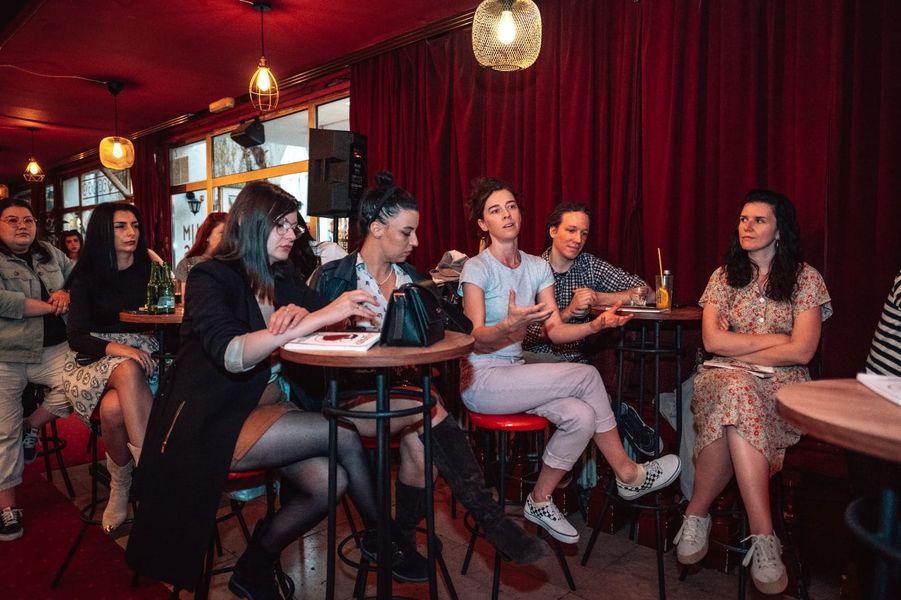
03 Apr There were no jokes in Kragujevac on April 1.
In the space of the UMMUS cultural center café, a diverse group of interested Kragujevac residents gathered for a public discussion about the hidden factors that shape women’s positions in society and gender-based violence in the workplace. The space was filled mostly with psychology students, and also present were professors from the same department.
The discussion was dynamic, covering a wide range of topics, from discussions on gender discrimination in the context of studies to recognizing psychologically unsafe behavior in various spheres of life.
Some of the specific questions that formed the backbone of the conversation were: What messages do women receive from family and society? How do gender-based stereotypes affect the image women have of themselves in the context of professional relationships? What is emotional safety at work? What challenges do women face in the circumstances of temporary and occasional work? How are women in public-facing jobs especially exposed to sexist and bullying behavior? How can we collectively bring about change? What are potential groups and places of encouragement and support?
Lara shared the results she arrived at in her research, and a particularly important part of her presentation was related to shedding light on emotional labor and the related service professions, which was very close to the students because many of them support themselves in this way during their studies.
Mia talked about empowering women in negotiation and leadership contexts. Iva Parađanin shared her intriguing experience working in a predominantly male sports editorial office, and how, while working for Vice, she decided to start addressing feminist topics, eventually dedicating her entire podcast to them.
Discussing hidden influences, the group identified minor forms of violence that contribute to building a culture of violence, which can lead to serious issues like gender-based violence and femicide.
Political topics were also discussed, highlighting the importance of civil association as a response to the challenges of the rise of right-wing narratives and the neglect of anti-fascist struggle in public discourse.
Reflecting on institutional gender-based violence, there was also discussion about the mechanisms that support it through institutions. Overall, the conversation was open to the exchange of ideas, support, and inspiration for further activities in promoting gender equality and combating violence.
After the formal part of the event, a group of female students expressed their desire to establish their own feminist society and sought advice on how to act within the local community. They were also interested in future similar events, given the lack of such content in their local community.
The project “Why do you say love and mean war?” was supported by the Embassy of the Kingdom of the Netherlands in Belgrade through the Matra program.
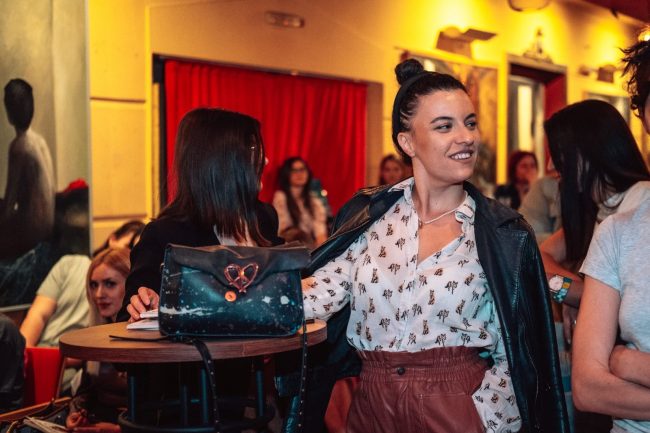
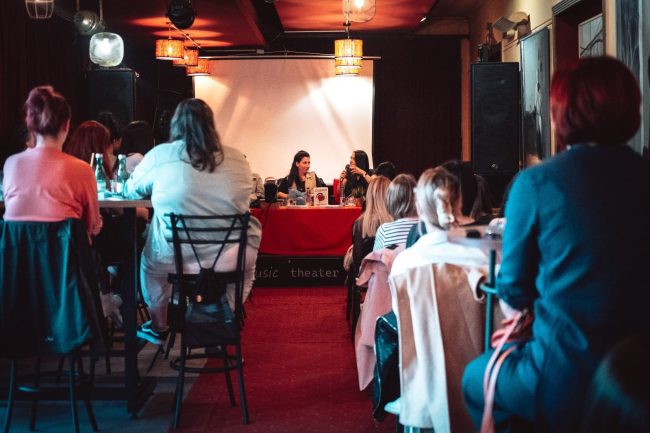
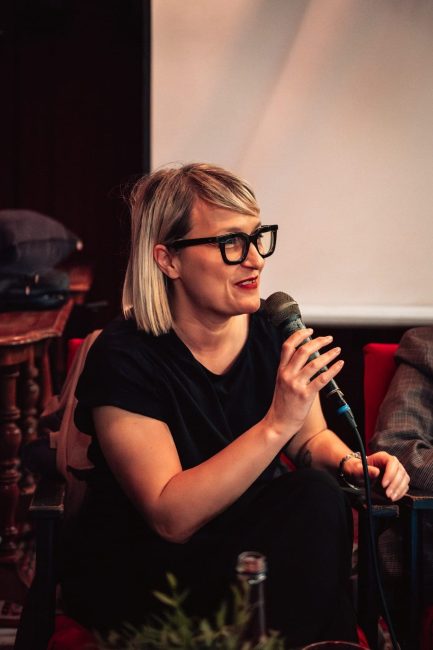
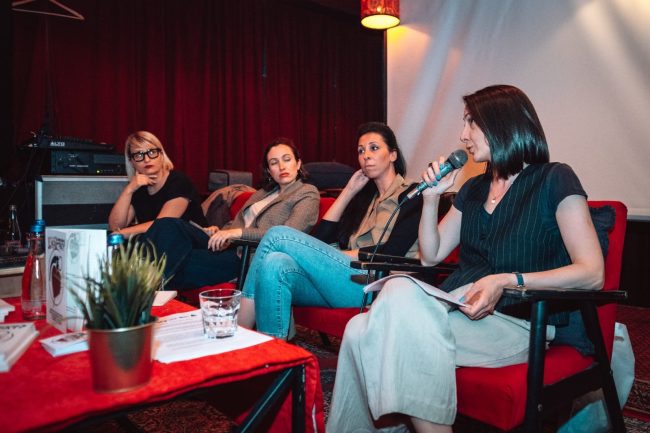



Sorry, the comment form is closed at this time.